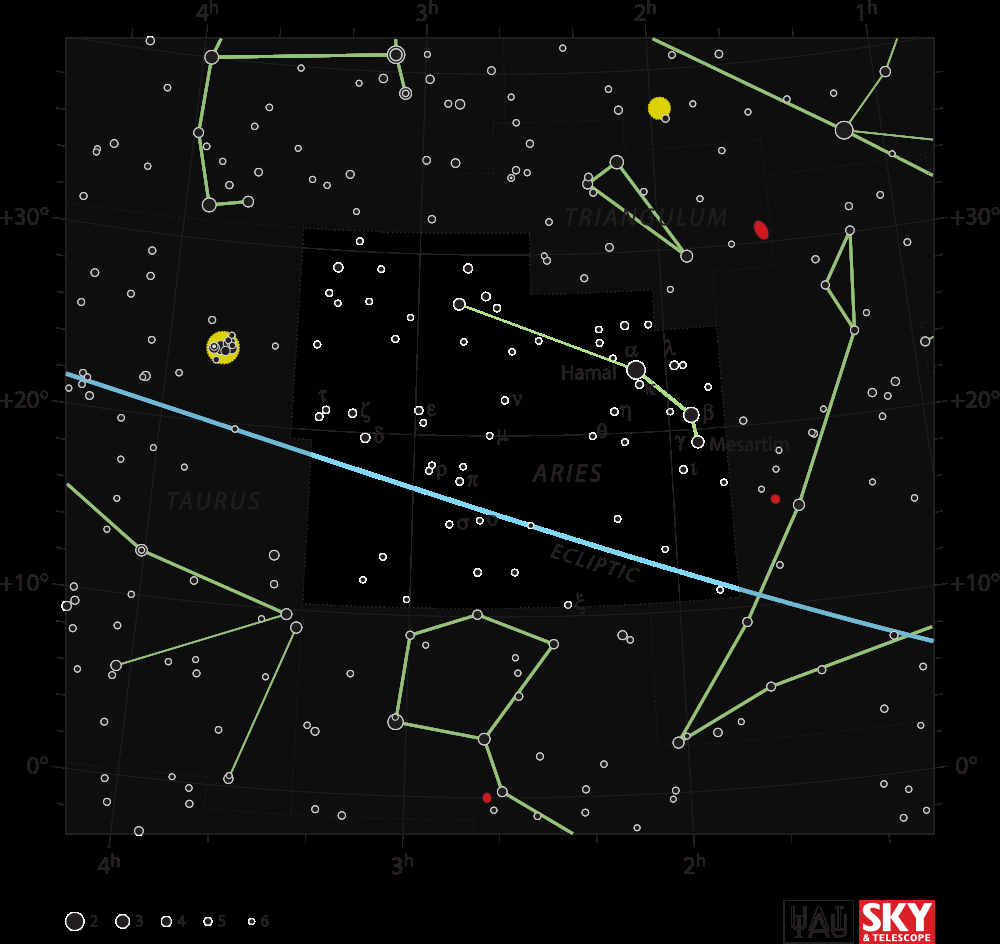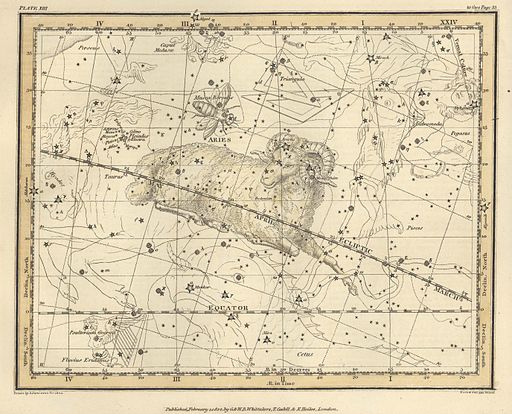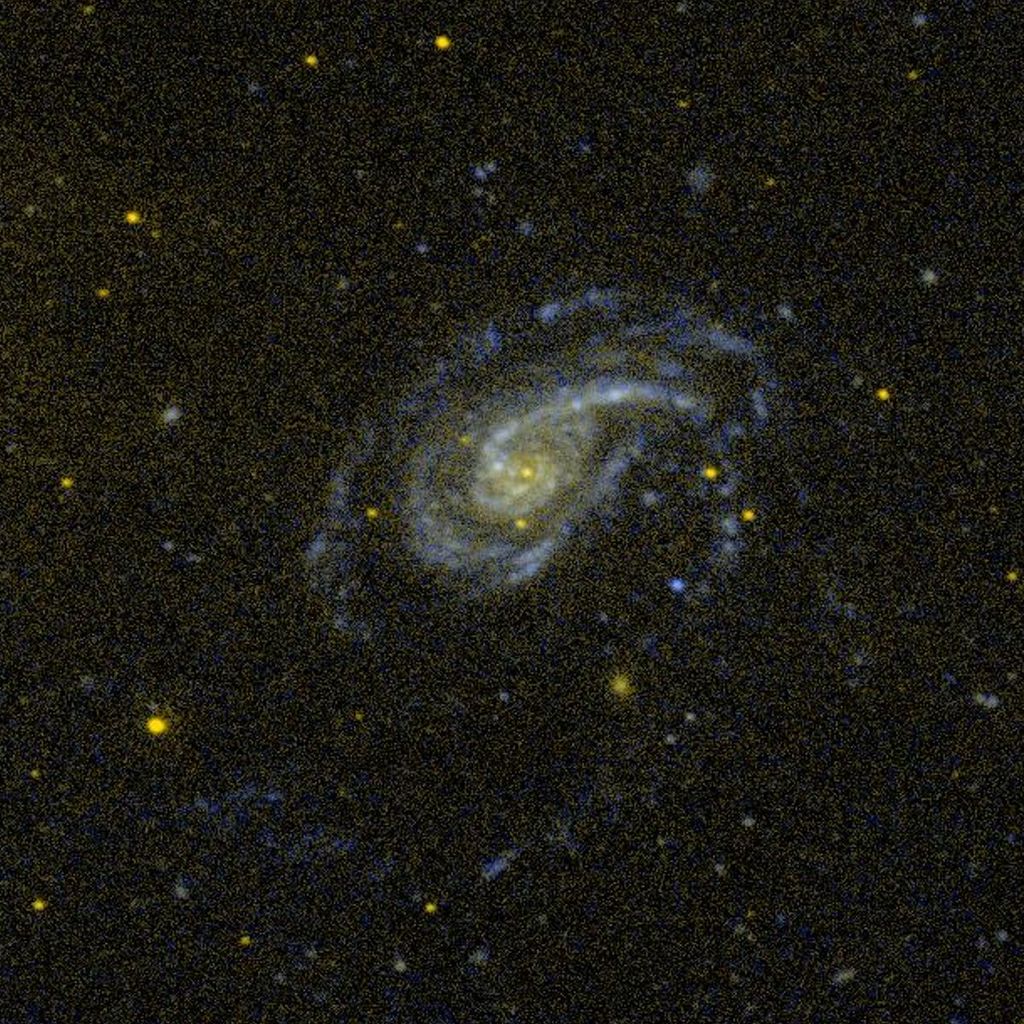
By IAU and Sky & Telescope magazine (Roger Sinnott & Rick Fienberg) [CC-BY-3.0], via Wikimedia Commons
"The Ram"

By IAU and Sky & Telescope magazine (Roger Sinnott & Rick Fienberg) [CC-BY-3.0], via Wikimedia Commons
Abbreviation: Ari
Genitive: Arietis
Constellation family: Zodiac
Nearest constellations: Cetus, Perseus, Pisces,
Taurus, and Triangulum
Right ascension: 2.66h
Declination: 20.09°
Visible between latitudes: +90° and -60°
Square degrees: 441
Luminary: Hamal (Alpha Arietis)
Named stars: Hamal, Sheratan, Mesarthim
Notable deep sky objects: NGC 697, NGC 772, NGC 972, NGC 1156
Aries is one of the twelve constellations of the Zodiac. It is located in the Northern Hemisphere and is best viewed in December.
Aries used to contain the vernal equinox (meaning the sun would pass through Aries on the equinox), but due to Earth's precession the equinox has moved into Pisces.

By Alexander Jamieson (United States Naval Observatory Library) [Public domain], via Wikimedia Commons
According to some sources, Aries represents a flying ram in Greek mythology which had golden fleece. There are two main stories associated with the ram.
In the first, the cloud nymph Nephele had two children with Athamas, King of Boeotia. Athamas later divorced her and married a woman named Ino, who hated Nephele's children Phrixus and Helle. Ino tried to have them killed, but the children escaped on the back of the ram after being instructed not to look down while they traveled through the air.
Despite the warning, Helle did look at the ground below and fell off. The body of water in which she drowned was called the Hellespont to commemorate her (the Hellespont is now called the Dardanelles). Phrixus survived and made it to Colchis (or Georgia) and met King Aeetes, who hung the golden fleece on a tree and protected it with a dragon after the ram itself was sacrificed to the gods.
The second story involves Jason and the Argonauts, a group of Greek heroes sent on a quest to take the fleece from King Aeetes.
NGC 772 (spiral galaxy):

Adam Block/Mount Lemmon SkyCenter/University of Arizona [CC-BY-SA-3.0-us], via Wikimedia Commons
Another image of NGC 772:

By NASA, STScI, WikiSky (WikiSky's snapshot tool) [Public domain], via Wikimedia Commons